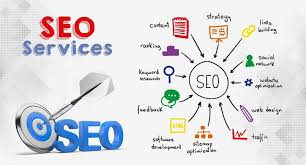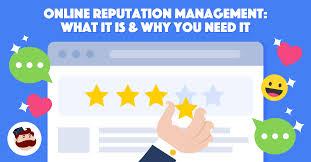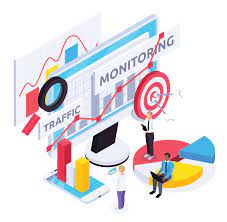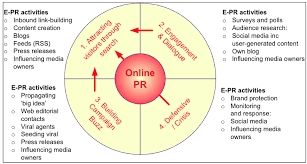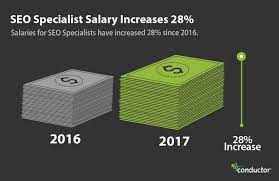SEO Salary: Understanding the Value of Search Engine Optimization Professionals
In today’s digital era, search engine optimization (SEO) has become a crucial aspect of any successful online presence. With businesses striving to improve their visibility and rank higher on search engine results pages, the demand for SEO professionals has skyrocketed. As a result, understanding the value and importance of SEO salary is essential for both employers and individuals looking to pursue a career in this field.
Firstly, it is important to recognize that SEO is not just about optimizing websites for search engines. It involves a comprehensive approach to enhance website performance, user experience, and content relevance. SEO professionals work diligently to ensure that websites are easily discoverable by search engines and provide valuable information to users.
When it comes to determining SEO salaries, several factors come into play. Experience level, expertise, location, and company size are key determinants of compensation packages. Entry-level positions may offer lower salaries compared to those with several years of experience or specialized skills in areas like technical SEO or content marketing.
According to industry reports, the average SEO salary in the United Kingdom ranges from £25,000 to £45,000 per year for mid-level positions. However, senior-level SEO specialists or managers can earn significantly higher salaries ranging from £50,000 to £70,000 per year or even more depending on their level of expertise and responsibilities.
The value of investing in skilled SEO professionals cannot be overstated. Effective SEO strategies can lead to increased organic traffic, improved conversion rates, and ultimately higher revenue for businesses. Hiring experienced SEO specialists ensures that companies have access to individuals who understand the ever-changing algorithms used by search engines and can adapt strategies accordingly.
Additionally, as digital marketing continues to evolve rapidly, so does the demand for versatile professionals who can integrate various marketing channels effectively. An experienced SEO specialist can collaborate with other teams such as content creators, web developers, social media managers, and data analysts to create holistic marketing strategies that drive results.
For individuals considering a career in SEO, it is important to note that the field offers numerous opportunities for growth and development. As businesses increasingly recognize the value of SEO, professionals with strong skills and expertise are in high demand. Continuous learning, staying updated with industry trends, and acquiring certifications can significantly enhance career prospects and earning potential.
In conclusion, SEO professionals play a vital role in helping businesses establish a strong online presence and drive organic traffic. The value of their expertise is reflected in their salaries, which can vary based on experience, specialization, location, and company size. Investing in skilled SEO professionals is crucial for companies looking to stay ahead in the highly competitive digital landscape. Likewise, individuals pursuing a career in SEO can expect ample opportunities for growth and advancement as the field continues to evolve.
5 Essential Tips for Optimizing Your SEO Salary in the UK
- Research industry standards
- Highlight your expertise
- Consider certifications
- Negotiate based on experience
- Stay updated with industry trends
Research industry standards
When it comes to determining a fair and competitive SEO salary, one valuable tip is to research industry standards. Understanding the average compensation range for SEO professionals in your area can help both employers and individuals negotiate salaries that reflect market value.
Researching industry standards provides insight into the prevailing salary trends and helps set realistic expectations. It allows employers to offer competitive compensation packages that attract top talent, while also ensuring that employees receive fair remuneration for their skills and expertise.
Several resources can aid in researching industry standards for SEO salaries. Online job portals, industry reports, and professional networking platforms often provide salary data specific to the field of search engine optimization. These sources offer valuable insights into average salaries based on experience levels, job titles, and geographical locations.
By conducting thorough research, employers can gain a better understanding of the compensation ranges for different positions within the SEO field. This knowledge enables them to make informed decisions when setting budgets for hiring or promoting SEO professionals.
For individuals seeking employment or negotiating a salary increase in the SEO industry, researching industry standards is equally important. It allows them to assess their market value based on factors such as experience, skillset, and location. Armed with this knowledge, they can confidently negotiate fair compensation packages that align with their expertise.
Moreover, staying updated on industry standards ensures that both employers and employees are aware of any shifts or changes in salary expectations over time. The digital landscape is dynamic, with new technologies and techniques continuously emerging. As such, it’s crucial to regularly revisit salary research to ensure that compensation remains competitive and reflective of current market conditions.
In conclusion, researching industry standards for SEO salaries is an essential step in setting fair compensation packages for both employers and employees. By understanding average salary ranges in the field of search engine optimization, employers can attract top talent while ensuring they remain competitive within the market. Similarly, individuals can negotiate salaries that reflect their skills and experience accurately. Regularly revisiting this research helps keep compensation aligned with industry trends and changes.
Highlight your expertise
When it comes to negotiating your SEO salary, one key tip to keep in mind is to highlight your expertise. In the competitive world of search engine optimization, employers are looking for professionals who possess a deep understanding of the field and can deliver tangible results.
Firstly, make sure to showcase your experience and accomplishments. Highlight any successful SEO campaigns you have worked on in the past, emphasizing the positive impact they had on website rankings and organic traffic. This demonstrates your ability to drive results and adds value to your skillset.
Additionally, emphasize any specialized skills or certifications you possess. Whether it’s technical SEO, content marketing, or data analysis, showcasing expertise in specific areas can set you apart from other candidates. Employers are often willing to pay a higher salary for professionals with specialized knowledge that aligns with their company’s needs.
Furthermore, stay updated with the latest industry trends and developments. SEO is an ever-evolving field, and employers value professionals who demonstrate a commitment to continuous learning. Highlight any courses or workshops you have attended or certifications you have obtained. This shows that you are proactive in staying ahead of the curve and brings added value to your role.
Lastly, don’t be afraid to negotiate confidently based on your expertise. Research market rates for SEO professionals in your area and use that information as leverage during salary discussions. Be prepared to articulate why your skills and experience warrant a higher compensation package.
In conclusion, highlighting your expertise is essential when negotiating an SEO salary. By showcasing your experience, specialized skills, ongoing learning initiatives, and confidence during negotiations, you can position yourself as a valuable asset in the competitive job market of search engine optimization.
Consider certifications
When it comes to pursuing a career in SEO and aiming for a competitive salary, one important factor to consider is certifications. In the ever-evolving world of digital marketing, certifications play a significant role in showcasing your expertise and dedication to staying updated with industry best practices.
Certifications in SEO provide tangible proof of your skills and knowledge, making you stand out among other candidates. They demonstrate that you have invested time and effort into mastering the core concepts and techniques required for effective search engine optimization.
There are several reputable certifications available, such as Google Ads and Analytics certifications, HubSpot Inbound Marketing certification, Moz SEO certification, and SEMrush SEO toolkit course. These certifications cover various aspects of SEO, including keyword research, on-page optimization, link building strategies, analytics interpretation, and more.
Earning these certifications not only enhances your credibility but also expands your understanding of the intricacies involved in successful SEO campaigns. They equip you with the latest tools and strategies required to navigate the ever-changing digital landscape effectively.
Moreover, many employers value certifications as they demonstrate a commitment to professional growth and continuous learning. Having these credentials can give you an edge during salary negotiations or when applying for higher-level positions within an organization.
In addition to boosting your career prospects and salary potential, certifications also provide networking opportunities. Many certification programs offer access to exclusive communities or forums where you can connect with industry experts and like-minded professionals. Engaging with these communities can help you stay updated with emerging trends, exchange ideas, and even discover new job opportunities.
It’s worth noting that while certifications are valuable additions to your resume, they should be complemented by practical experience. Hands-on application of knowledge gained through certifications is crucial for developing real-world skills that employers seek.
In conclusion, if you’re looking to increase your earning potential in the field of SEO while demonstrating your expertise to employers or clients alike, consider investing in relevant certifications. These credentials not only validate your skills but also provide access to valuable resources and networking opportunities. Combined with practical experience, certifications can significantly contribute to a successful career in SEO and open doors to higher salary opportunities.
Negotiate based on experience
When it comes to negotiating your SEO salary, one crucial factor to consider is your experience in the field. Employers understand that experience brings valuable insights and expertise, making you an asset to their team. Therefore, it is important to leverage your experience during negotiations to secure a fair and competitive salary.
Having a solid track record in SEO showcases your ability to generate results and contribute significantly to a company’s online presence. It demonstrates that you have the skills and knowledge necessary to navigate the intricacies of search engine algorithms, keyword research, content optimization, and other essential aspects of SEO.
During salary negotiations, highlight specific achievements and successes from your previous roles. Discuss how you have improved organic search rankings, increased website traffic, or enhanced conversion rates for previous employers or clients. Concrete examples like these demonstrate the value you bring to the table.
Additionally, if you possess any specialized skills or certifications in SEO-related areas such as technical SEO or local search optimization, be sure to emphasize them. These additional qualifications can set you apart from other candidates and justify a higher salary based on your unique expertise.
Remember that negotiation is a two-way process. While you want to secure a fair salary based on your experience, it’s also essential to consider other factors such as company culture, benefits package, growth opportunities, and work-life balance. A comprehensive compensation package can often be more valuable than just focusing on the base salary alone.
Lastly, approach negotiations with confidence but remain open to discussion. Be prepared for potential counteroffers or alternative compensation structures such as performance-based bonuses or additional perks. Flexibility in negotiations can lead to mutually beneficial outcomes for both parties involved.
In conclusion, negotiating your SEO salary based on experience is vital for ensuring fair compensation that reflects your value as an experienced professional in the field. Highlighting achievements and specialized skills can strengthen your position during negotiations. Remember to consider all aspects of the compensation package and be open to discussion throughout the process. By effectively leveraging your experience, you can secure a salary that recognizes your expertise and sets you up for success in the dynamic world of SEO.
Stay updated with industry trends
Staying Updated with Industry Trends: A Key to Success in SEO Salary
In the fast-paced world of search engine optimization (SEO), staying updated with industry trends is vital for professionals looking to maximize their earning potential. As search engines continuously evolve their algorithms and user preferences change, keeping abreast of the latest developments ensures that SEO specialists remain at the forefront of their field.
One of the primary reasons why staying updated with industry trends is crucial for SEO salary growth is the ever-changing nature of search engine algorithms. Search engines like Google regularly update their algorithms to deliver more accurate and relevant search results. These updates can have a significant impact on website rankings and organic traffic. By staying informed about algorithm changes, SEO professionals can adapt their strategies accordingly, helping businesses maintain or improve their online visibility.
Moreover, understanding user preferences and behaviour is essential for effective SEO practices. User experience has become a critical factor in search engine rankings. By keeping up with the latest trends in user behaviour, such as mobile usage patterns or voice search, SEO specialists can optimize websites to enhance user experience and increase engagement. This, in turn, leads to improved rankings and higher organic traffic.
Another reason why staying updated with industry trends is crucial for SEO salary growth is the emergence of new technologies and tools. The field of SEO is constantly evolving, with innovative tools and techniques being introduced regularly. By staying informed about these advancements, professionals can leverage new technologies to streamline their work processes, automate tasks, and deliver more efficient results. This not only enhances productivity but also positions them as valuable assets within their organizations.
Furthermore, being aware of industry trends allows SEO professionals to identify emerging opportunities and adapt their skillsets accordingly. For example, as voice search continues to gain popularity, optimizing websites for voice queries becomes increasingly important. By proactively learning about voice search optimization techniques and implementing them in their strategies, SEO specialists can position themselves as experts in this growing niche, potentially leading to higher salaries and career advancement opportunities.
To stay updated with industry trends, SEO professionals can engage in various activities. This includes regularly reading industry blogs, following reputable SEO news websites, attending conferences and webinars, participating in online forums and communities, and networking with other professionals in the field. By actively seeking out information and knowledge-sharing opportunities, SEO specialists can stay ahead of the curve and continuously improve their skills.
In conclusion, staying updated with industry trends is a critical factor in maximizing SEO salary growth. The ever-changing nature of search engine algorithms, user preferences, emerging technologies, and new opportunities necessitates continuous learning and adaptation. By staying informed about the latest developments in the field of SEO, professionals can enhance their expertise, deliver better results for businesses, and position themselves as valuable assets within their organizations. Embracing a mindset of lifelong learning is key to success in the dynamic world of SEO.



